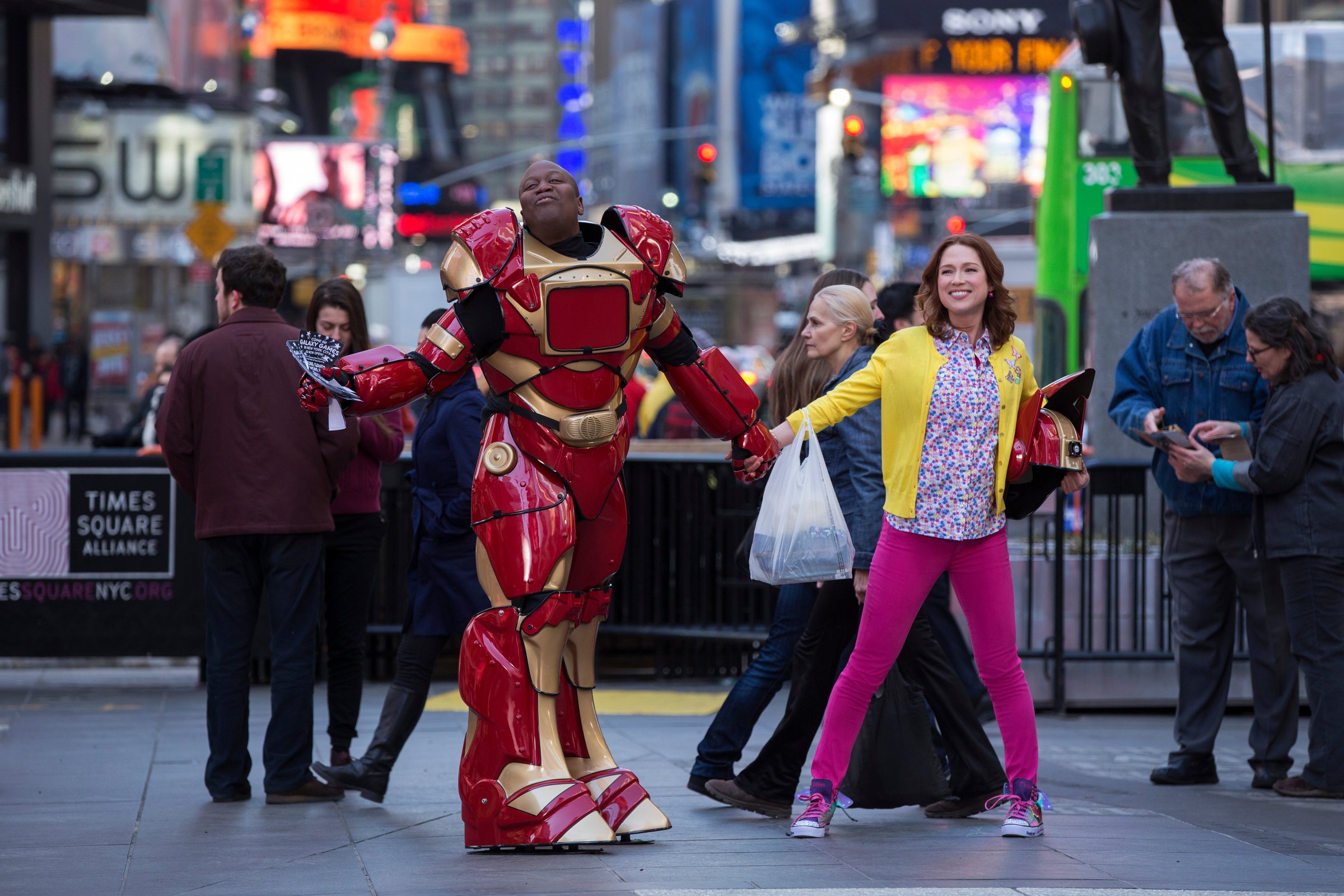
When they prepare the In Memoriam reel for the next Emmy Awards, let’s hope the academy sets aside some space for NBC’s Thursday comedy block, God rest its soul.
It was born in 1981, when the network aired the first in a set of comedy lineups that would include Cheers, The Cosby Show, Seinfeld, Friends, The Office, and many more legends. It died of old age and neglect on Jan. 22, 2015, with the little-noticed expirations of Bad Judge and A to Z. (Parks and Recreation outlived its cohort slightly, exiled to Tuesday.) It is survived by the night’s current occupants, espionage dramas Allegiance and The Blacklist, and The Slap, the upscale-parenting-drama miniseries that is a comedy only unintentionally.
NBC that euthanized its trademark block, but it is not solely guilty. The Must-See-TV brand indicted a kind of sitcom that at its best was both sophisticated and popular. But as cable grew and the outlets for comedy multiplied, individual audiences shrank. The finale of the urbane, witty Cheers drew over 80 million viewers, the finale of the urbane, witty 30 Rock, not quite 5 million.
CBS still succeeds with retro comedies (The Odd Couple), ABC with family sitcoms (black-ish), Fox with youthcoms (New Girl) and animated shows (Bob’s Burgers). But the kind of challenging, idiosyncratic comedy NBC was known for has other outlets now: HBO’s Veep and Silicon Valley, say, can be filthily hilarious without the slightest nod toward keeping their characters relatable.
Adult Swim, Comedy Central, FX and FXX–all these homes for comedy have sliced-and-diced the audience into ever-more specific niches, which has been great for comedy but not so great for a network like NBC, which requires millions of weekly viewers to keep a show afloat. Today, NBC doesn’t seem sure what its comedy identity is, but it’s ceding “quirky” to others.
Netflix, for instance. Unbreakable Kimmy Schmidt (season one premieres March 6) might have aired on NBC’s Thursday in another era–like last spring, when the network first picked up the comedy, about an escapee from an doomsday cult making a new life in New York City. (Between this and Last Man on Earth, the apocalypse has emerged as 2015’s hottest comedy trend.)
It had a Must-See Thursday pedigree, with 30 Rock‘s Tina Fey and Robert Carlock as co-creators. It had a Must-See Thursday star, Ellie Kemper of The Office. But by the time 2015 rolled around, there was no Must-See Thursday to schedule it on. So NBC, whose parent company produces Kimmy, made an unusual decision: it essentially pre-cancelled the show and sold it to the streaming service.
The deal was a sad statement about the potential for comedy at the new NBC. (Earlier last year, the network canceled the inventive Community, which will stream its sixth season on Yahoo starting March 17.) But it was probably the best thing possible for Kimmy, which is delightful but strange even by the standards of 30 Rock, and could have easily, quickly died on network TV. Netflix commited to two full seasons of the show before the first even aired.
The pilot opens in an underground bunker, where Kimmy (Kemper) is decorating a Christmas tree. She’s celebrated the holiday with the same three women since the ’90s, when she was 14 and kidnapped by an Indiana cult leader who claimed to be saving them from a nuclear apocalypse. After a SWAT team raids the bunker, the “Mole Women” are whisked to Manhattan for a Today show interview (a relic of cross-promo-obsessed NBC), after which Kimmy finds herself on the street, trying to figure out what to do with her life. She stumbles across a roommate share with broke actor Titus (30 Rock‘s Tituss Burgess) and eccentric landlady Lilian (sitcom legend Carol Kane). Alien in every way, still 14 at heart, Kimmy sets out to explore the terrae incognitae of the big city, the 2010s, and adulthood.
Kemper and Kimmy make one of TV’s most natural matches of actor and character since someone decided to make Lou Ferrigno the Hulk. She’s a terrific physical comic, able to combine naivete with a sense of cunning, and she’s contagiously joyous–it’s as if Lucille Ball had a baby with a rainbow. Kimmy knows almost nothing about today’s world, which means she doesn’t know enough to be jaded about it. When she spies a costume in the corner of Titus’ apartment–his day job is handing out arcade flyers wearing a copyright-violating Iron Man costume–she squeals with amazement: “Is that a real robot? Do people have robots now?” We may be watching a sitcom, but she’s living a sci-fi story.
Fey doesn’t appear in the series, but Kimmy occupies a lower-rent corner of the same cartoon-NYC universe as her last NBC show. The show’s zaniness, broad characters and rapid-fire jokes are pure 30 Rock, as is its overall aesthetic. (It even has similar jaunty incidental music, composed by Fey’s husband Jeff Richmond, who also wrote 30 Rock‘s.) When Kimmy finds a job as an under-the-table nanny, her vacuous one-percenter boss, Jacqueline Vorhees, is played by Jane Krakowski, who for all intents and purposes is doing Jenna Maroney 2.0 right down to the plastic-surgery connoisseurship. (“Feet are the new butts, Kimmy!”)
Kimmy’s a sunnier presence than Liz Lemon, but Unbreakable Kimmy Schmidt also has a darker core. Kimmy’s bunker experience is played for laughs (she “made a pet cat out of dryer lint”) but it was also abuse by a misogynistic cult leader who convinced the women their “dumbness” brought on the world’s end–all but Kimmy, who couldn’t be broken. The show’s feminism is even more pronounced than 30 Rock‘s; even Mrs. Vorhees has become who she is out of low self-esteem and desperation to hang on to her always absent, philandering husband.
On its own, the show’s concept might have just been a throwaway 30 Rock subplot; what sustains it is how it applies the concept of unbreakability beyond Kimmy. Each character is a survivor, including Titus, who comes across sashaying and stereotypical at first, but is also grappling with growing older as a struggling actor and a single gay man in New York. (“Am I a bear now?” he wonders after failing to seduce a younger man. “Or a daddy? Or a Huxtable?”)
Like Fey’s other work, Kimmy is intersectional; it’s connecting and contrasting the experience of outsiders, black and white, straight woman and gay man, sister-wife and trophy wife. And like 30 Rock, it draws comedy from the myriad ways an expensive, competitive city like New York beats people down. Think of the scene in 30 Rock‘s “Cleveland,” in which Liz, imagining growing old in Manhattan, watches a handsome elderly woman who strides down the street declaring, “There is nothing like New York in the spring!”–then gets pushed into a pile of garbage.
Kimmy is shot from a more distinctly garbage-eye point of view, yet it’s more optimistic. Whether she’s trying to connect with the spoiled Vorhees kids or to earn a GED in a school that has “a cardboard cutout of Michael Jordan teaching gym,” Kimmy is undaunted: if she can do 15 years in a bunker, she’s got this.
It will be interesting to see how Unbreakable Kimmy Schmidt will do on Netflix, which has focused mostly on binge-friendly serial dramas. It doesn’t quite have a model yet for comedy, which may lend itself more to grazing than bingeing.
If Kimmy would have been too odd for NBC, it’s oddly conventional for Netflix. When the streaming service revived Arrested Development, it was as a complex, non-linear narrative. Kimmy is structured like a typical network sitcom–more or less 22 minutes an episode, no swearing–with one notable difference. After the pilot, the end of most episodes introduces the plot of the following episode, the better to get viewers to click “Play Next.” (This, curiously, even though NBC produced the first season before ditching the show.)
For the six installments sent for review, anyway, it worked on me. In the end, I can’t blame NBC for not taking a chance on a show it probably did not have a place for. But I’m glad that Kimmy the show, like Kimmy the character, found itself in 2015, where Netflix could pull an odd misfit out of the bunker of network-TV limbo and bring it, blinking, into the light of day.
Read next: Watch the New Trailer for Unbreakable Kimmy Schmidt
LIFE Watches TV: Classic Photos of People and Their Television Sets
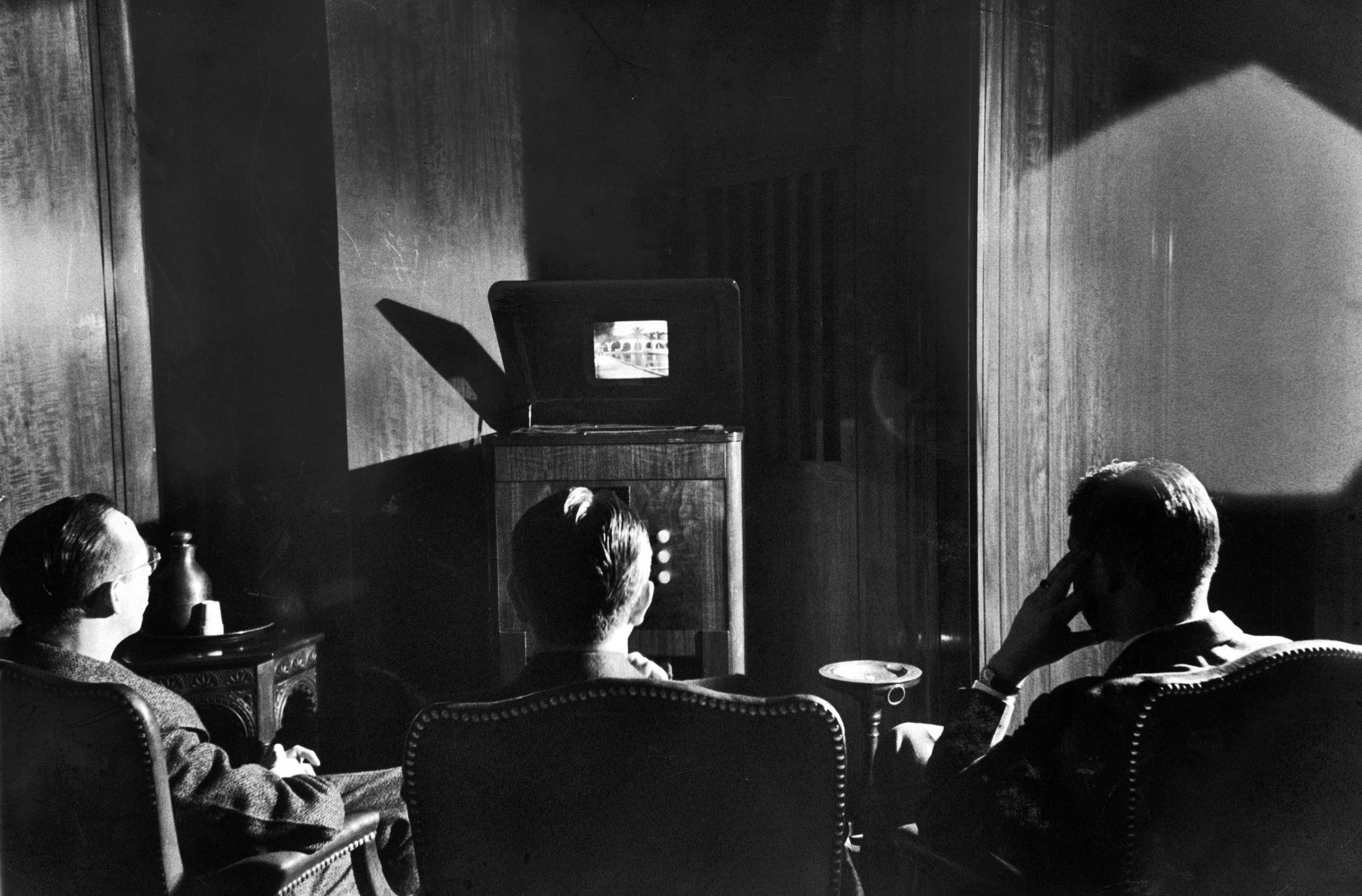
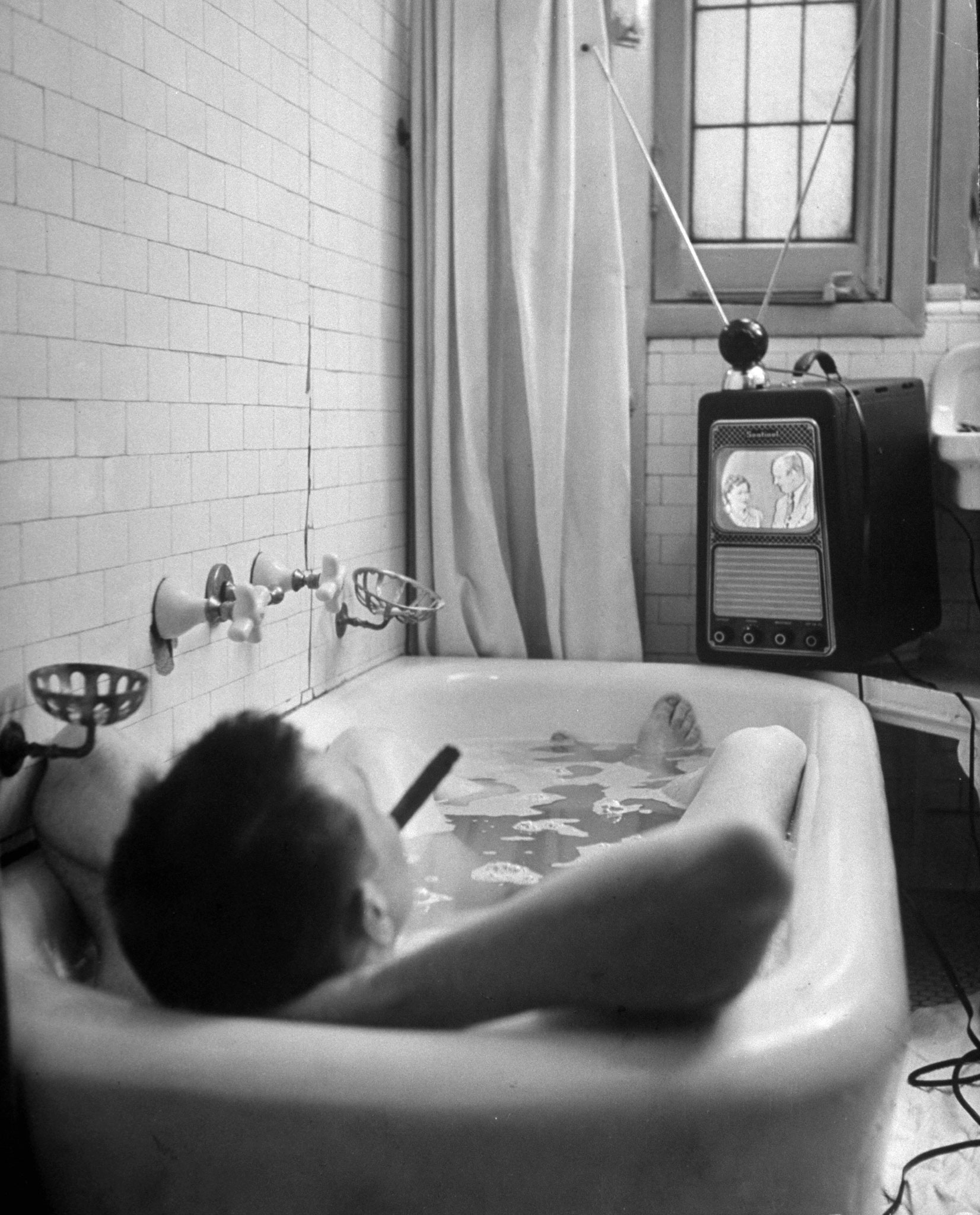
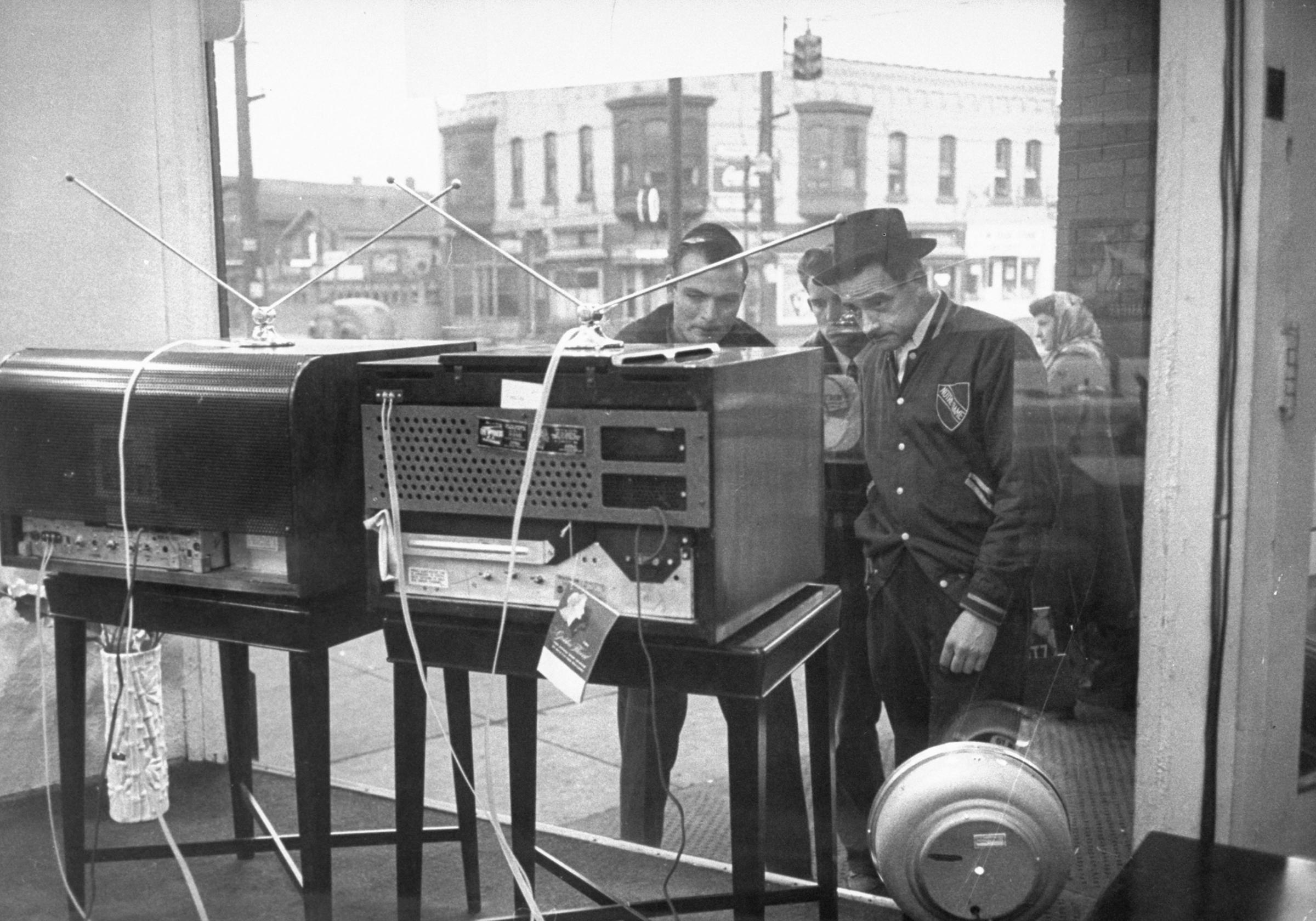
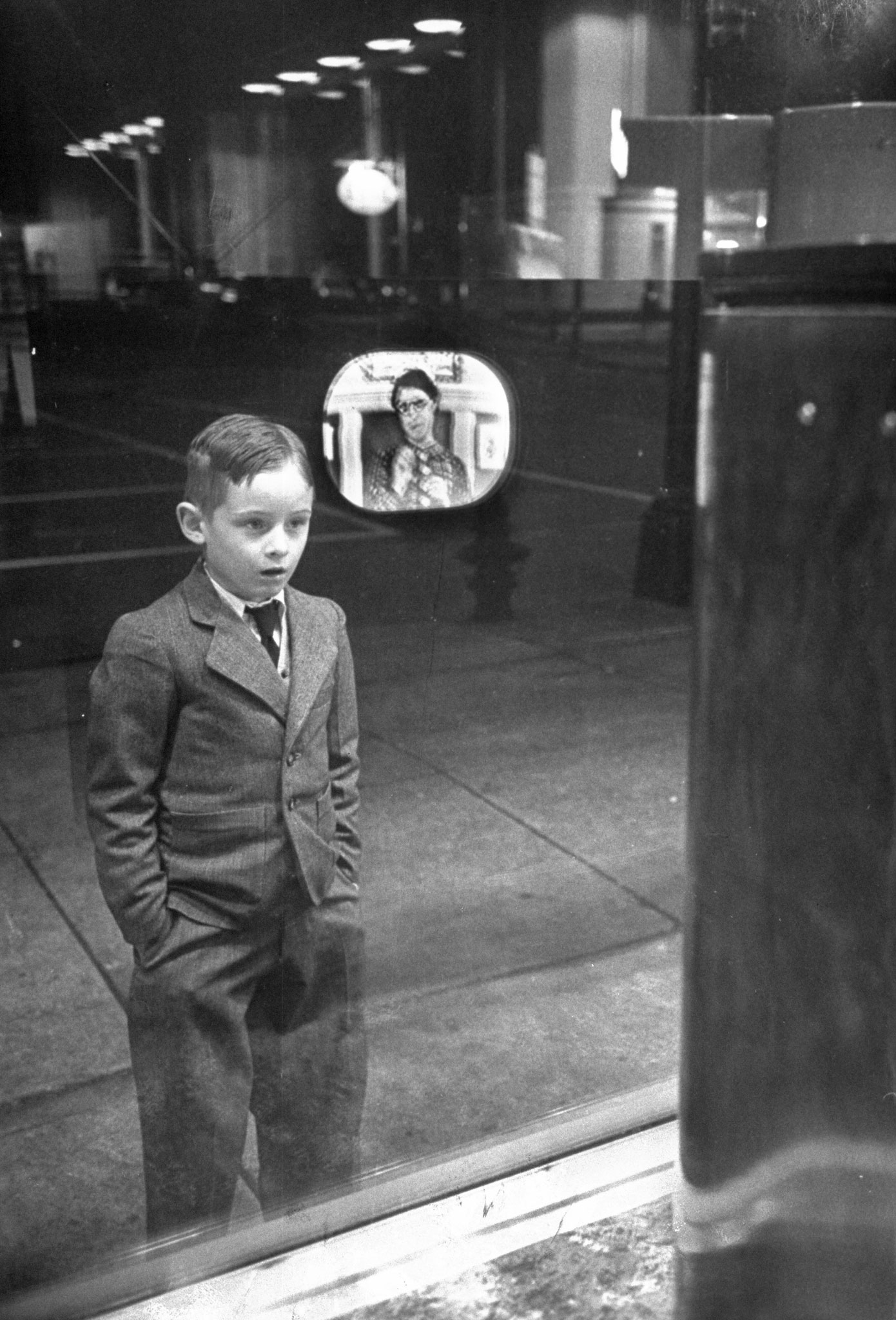
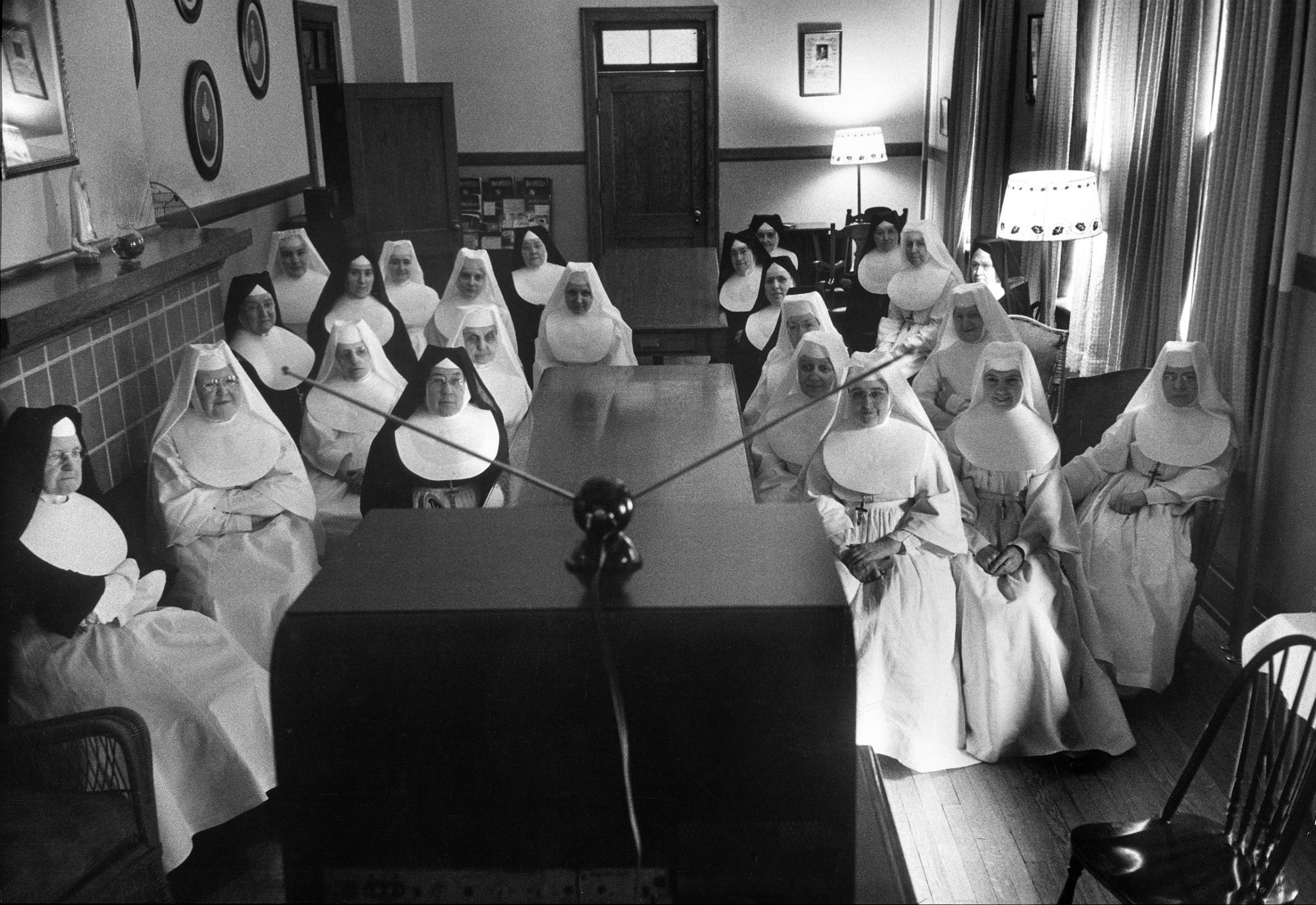
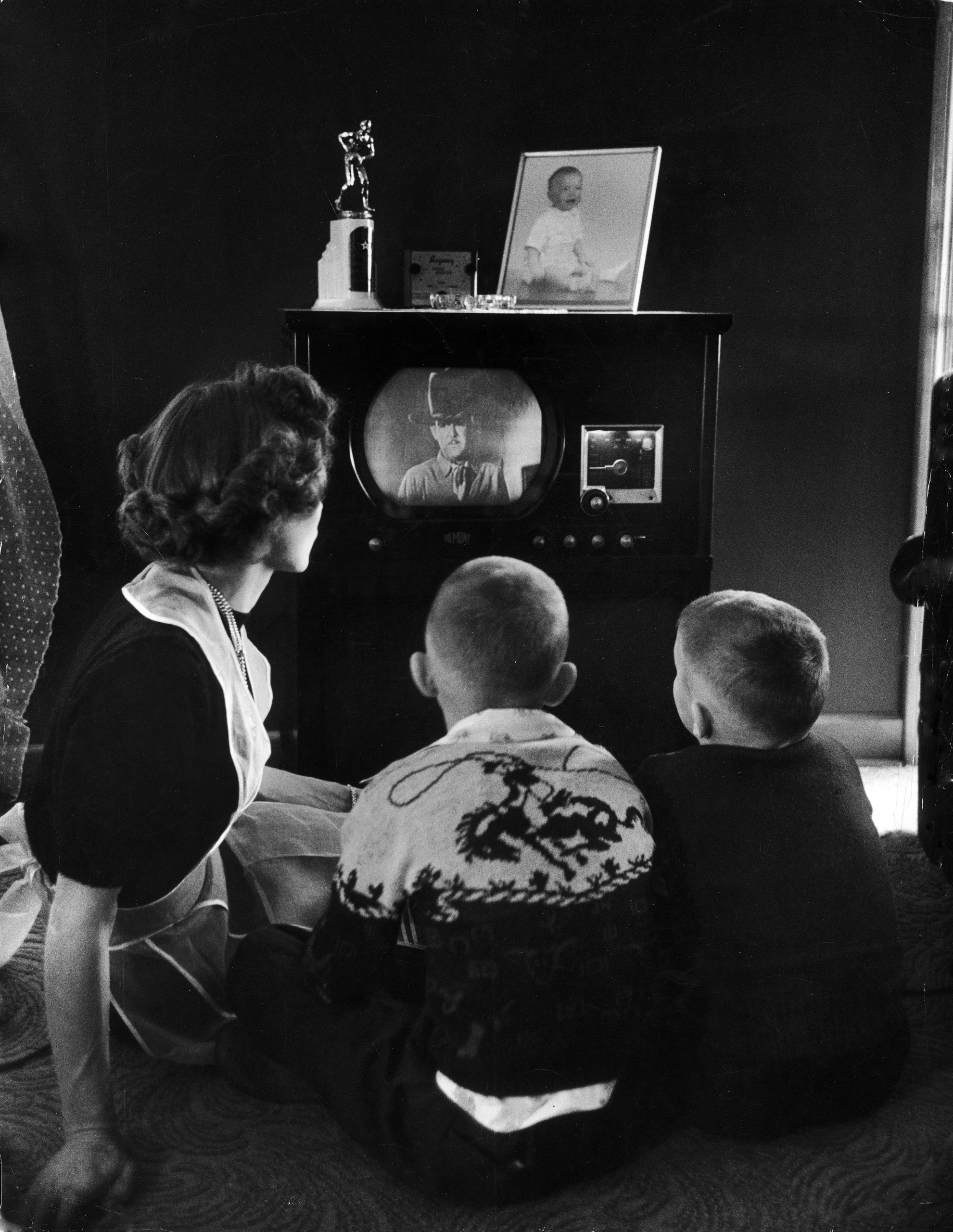
![Jacob A. Malik [Misc.] A group of swimmers at an indoor pool watch the Russian ambassador to the United Nations, Jacob Malik, filibustering in the UN Security Council in 1950.](https://api.time.com/wp-content/uploads/2014/11/141113-vintage-television-photos-07.jpg?quality=75&w=2400)
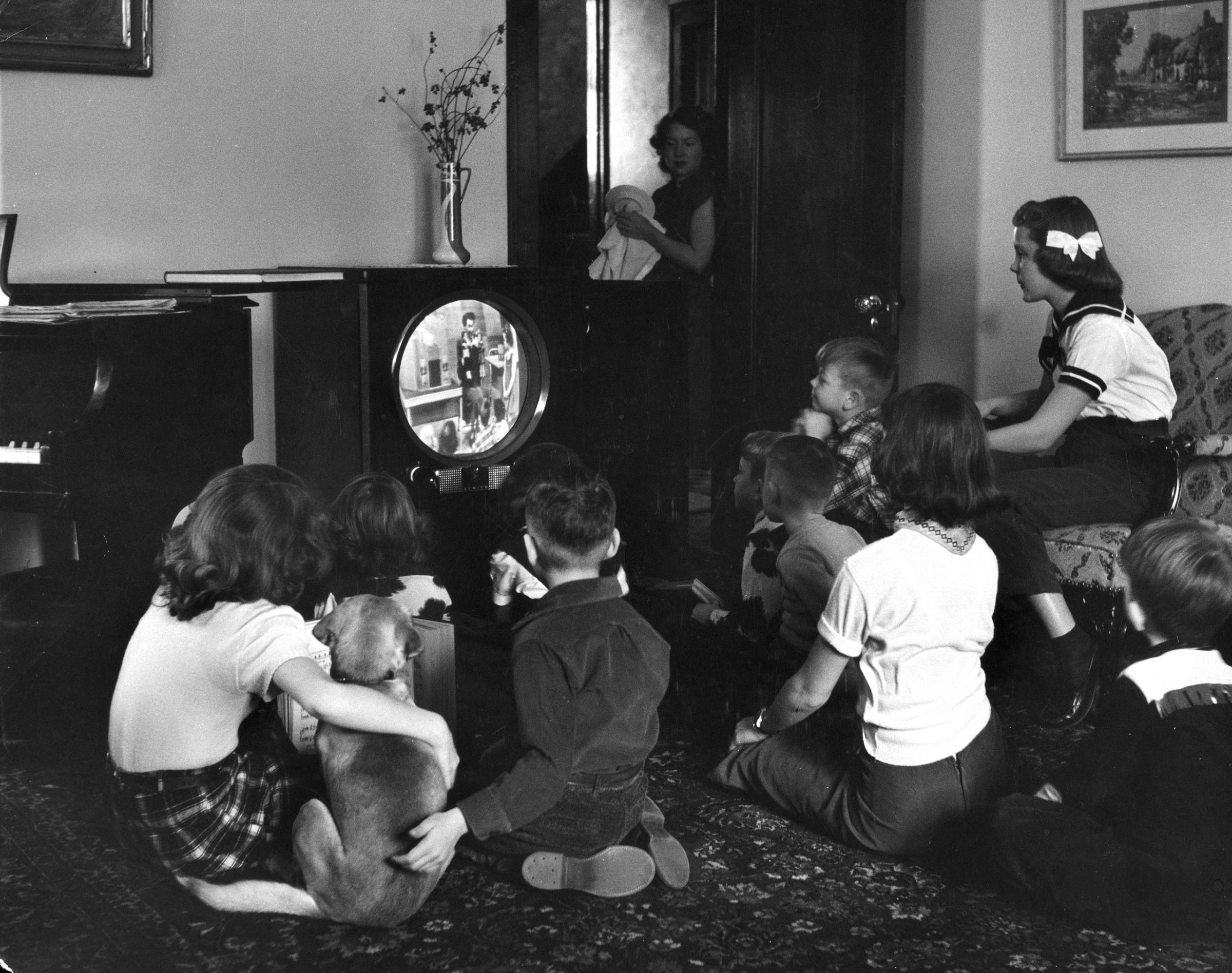

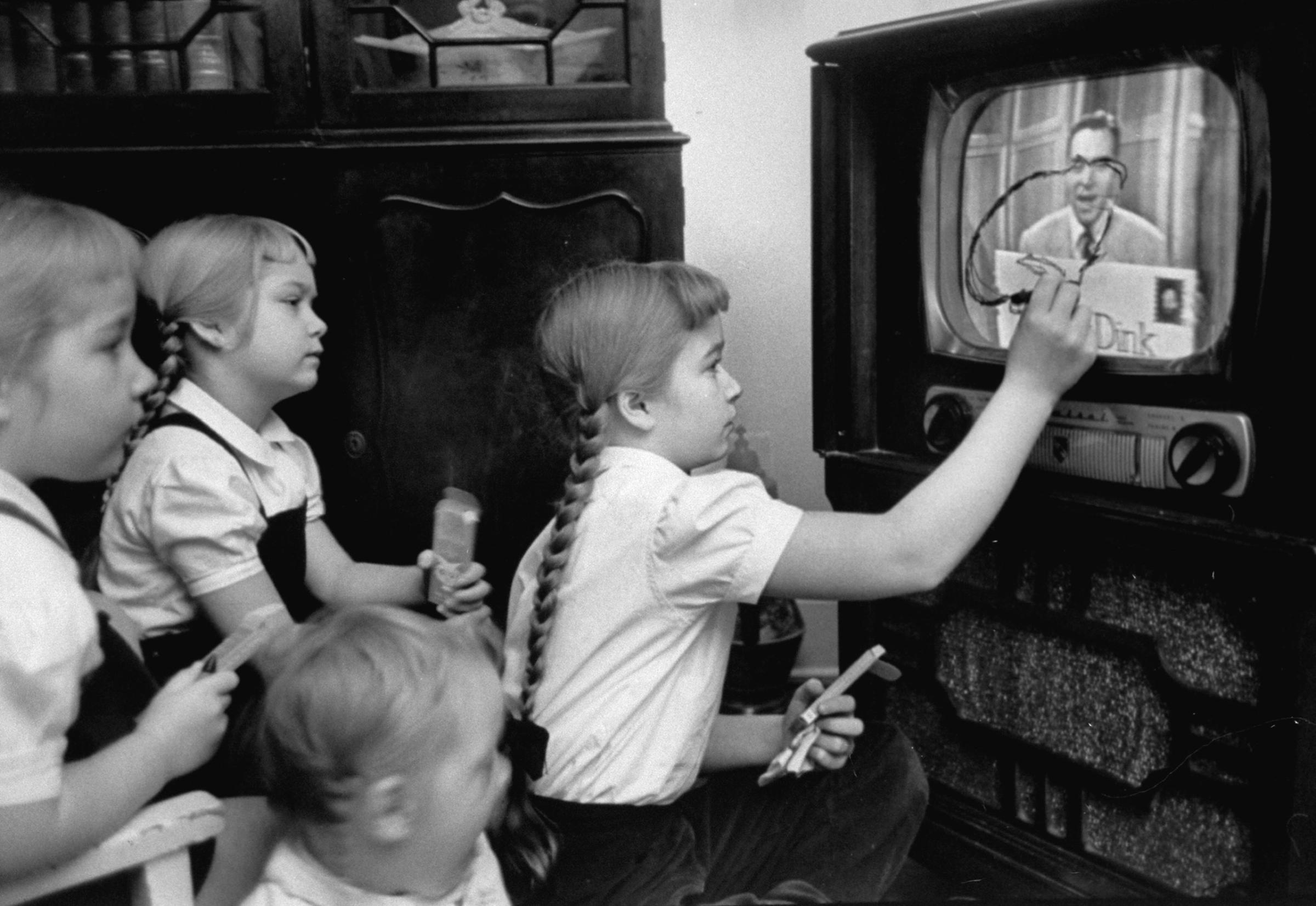
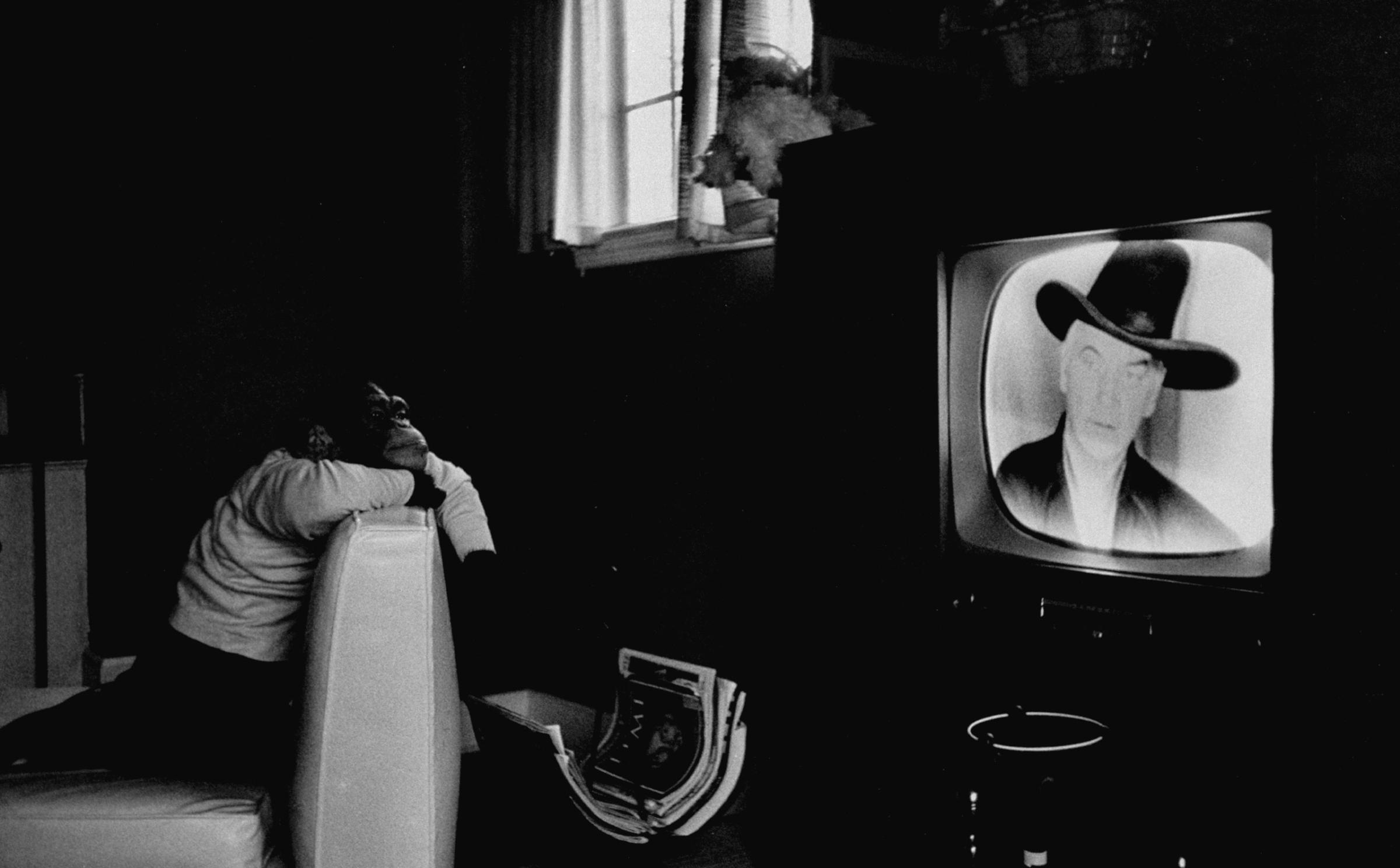
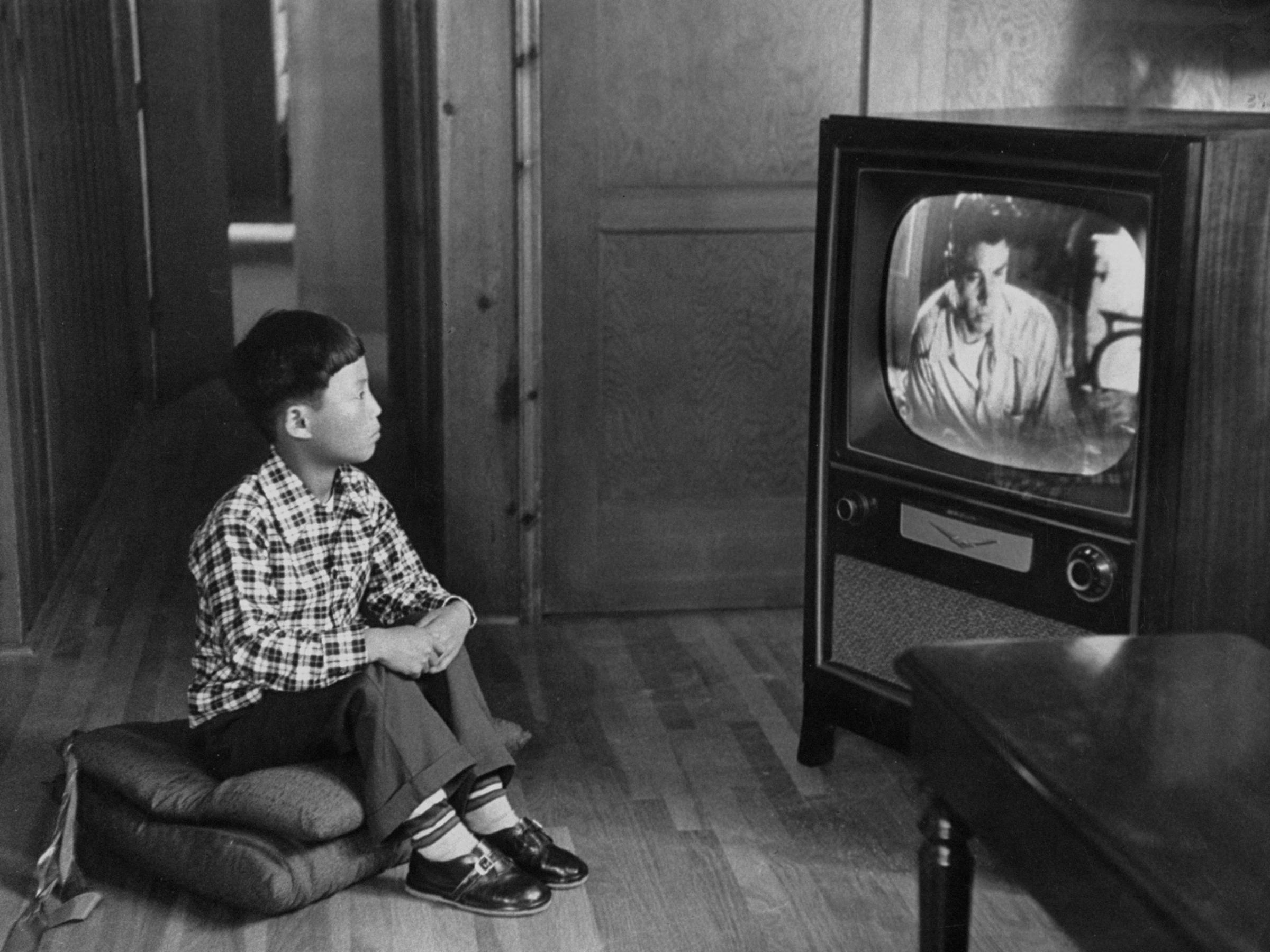
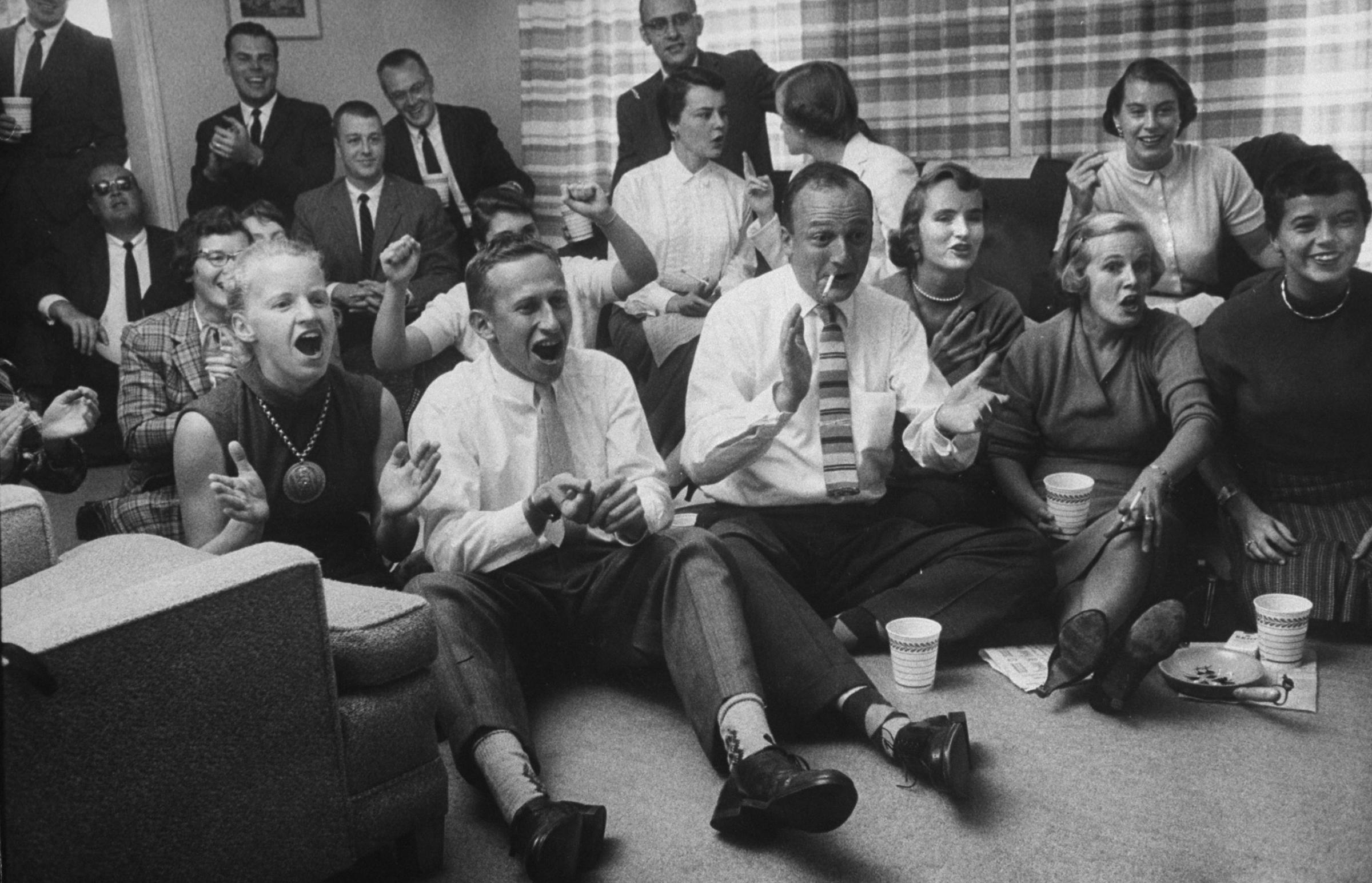


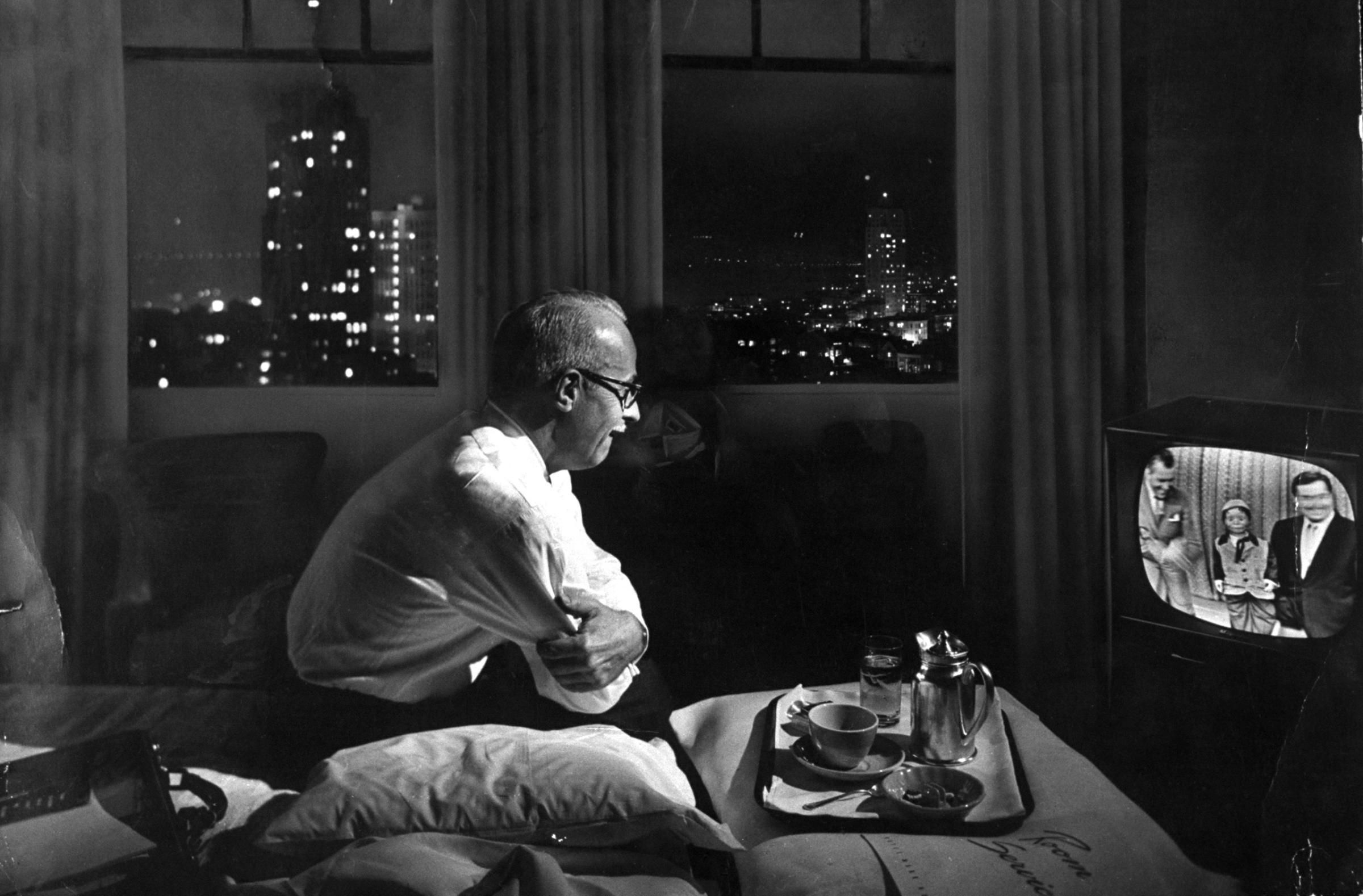
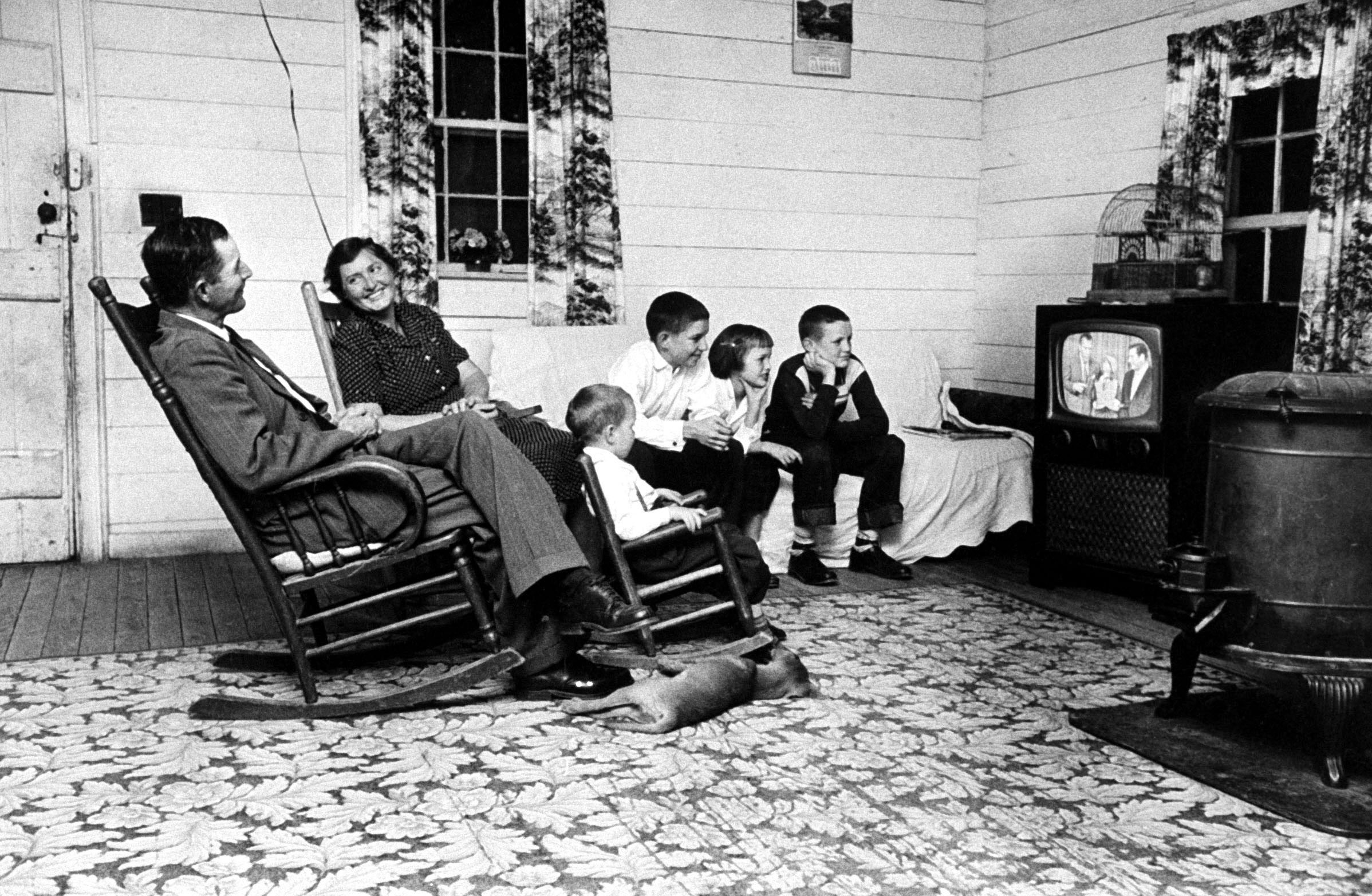
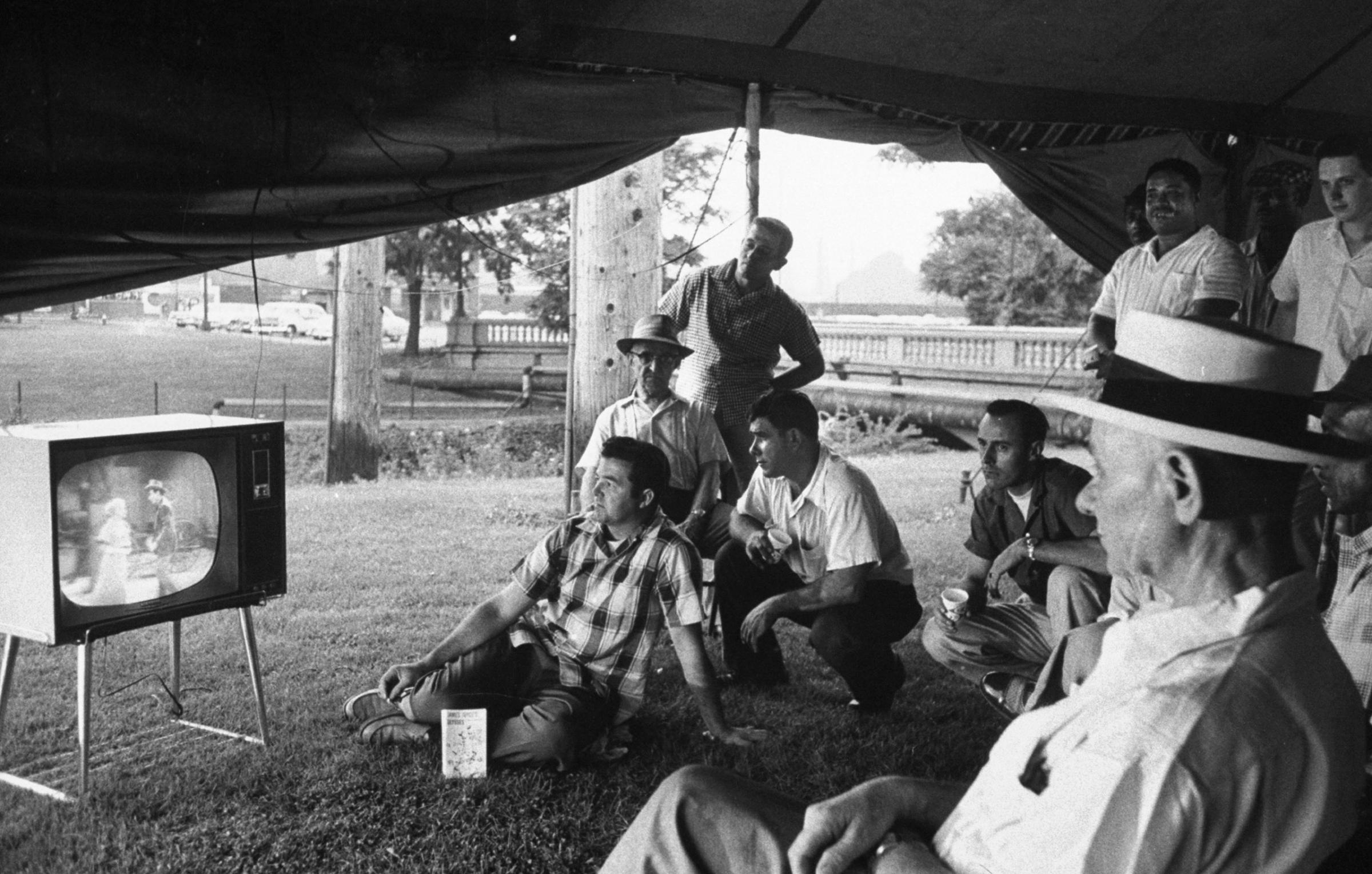
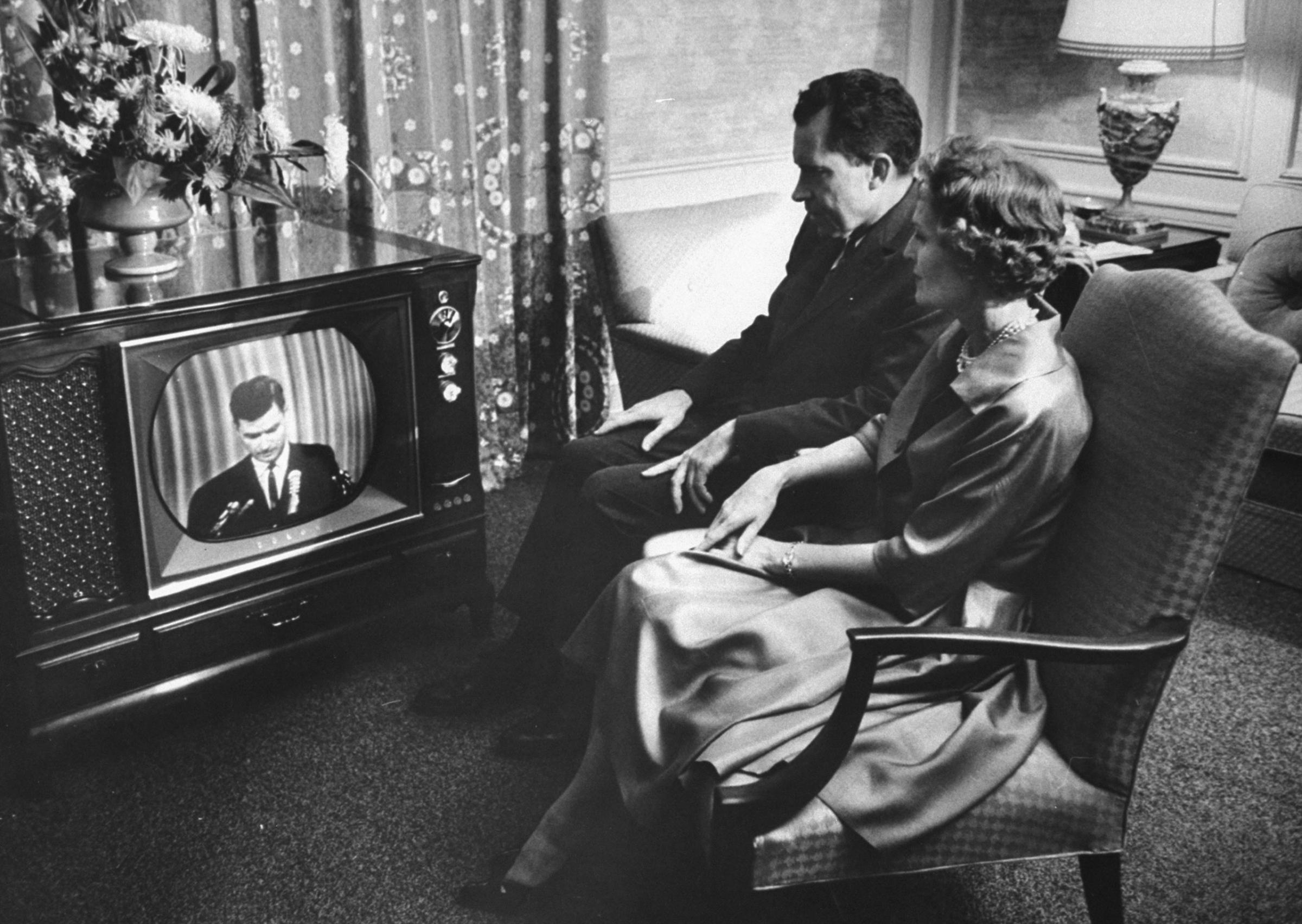
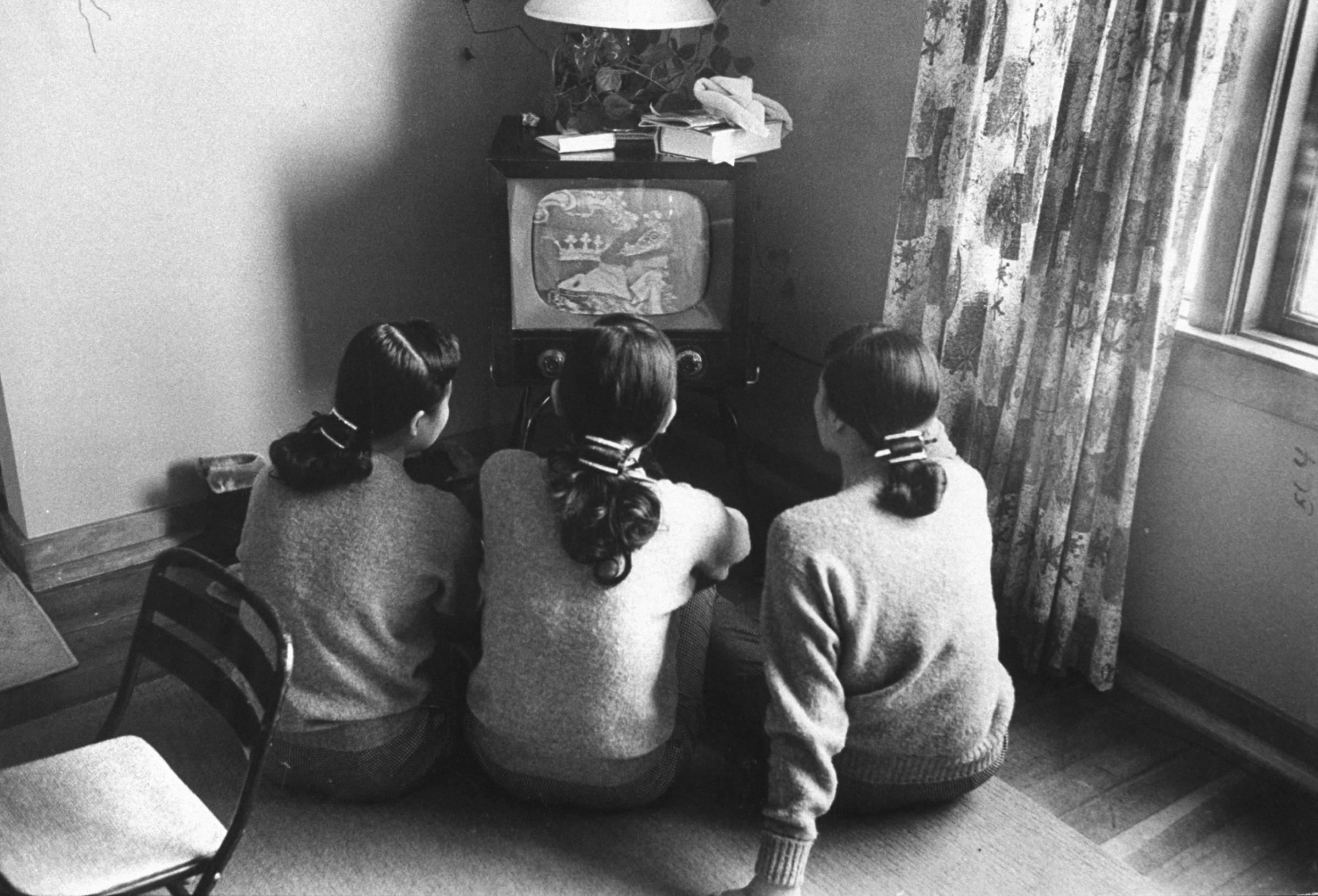
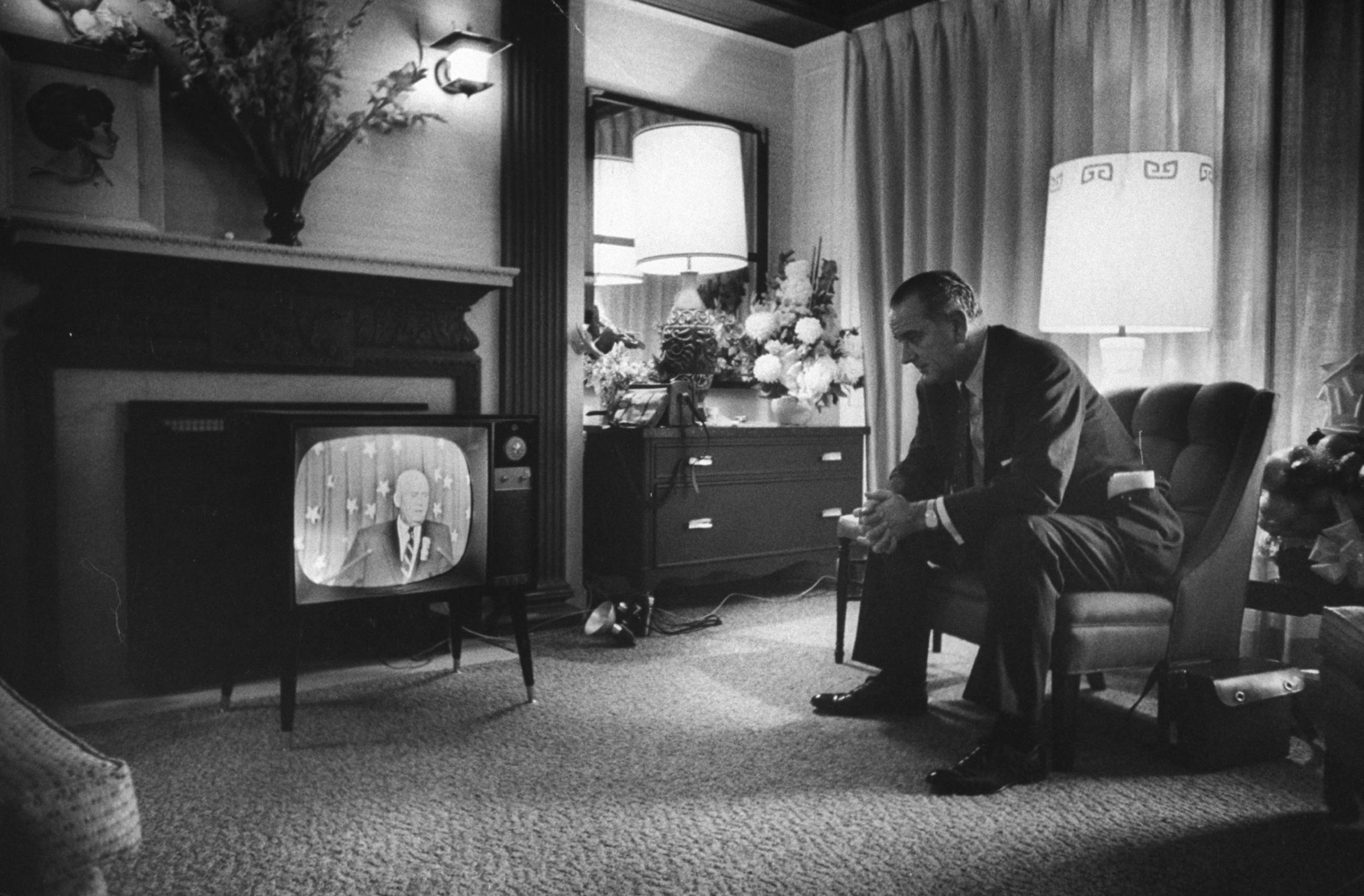
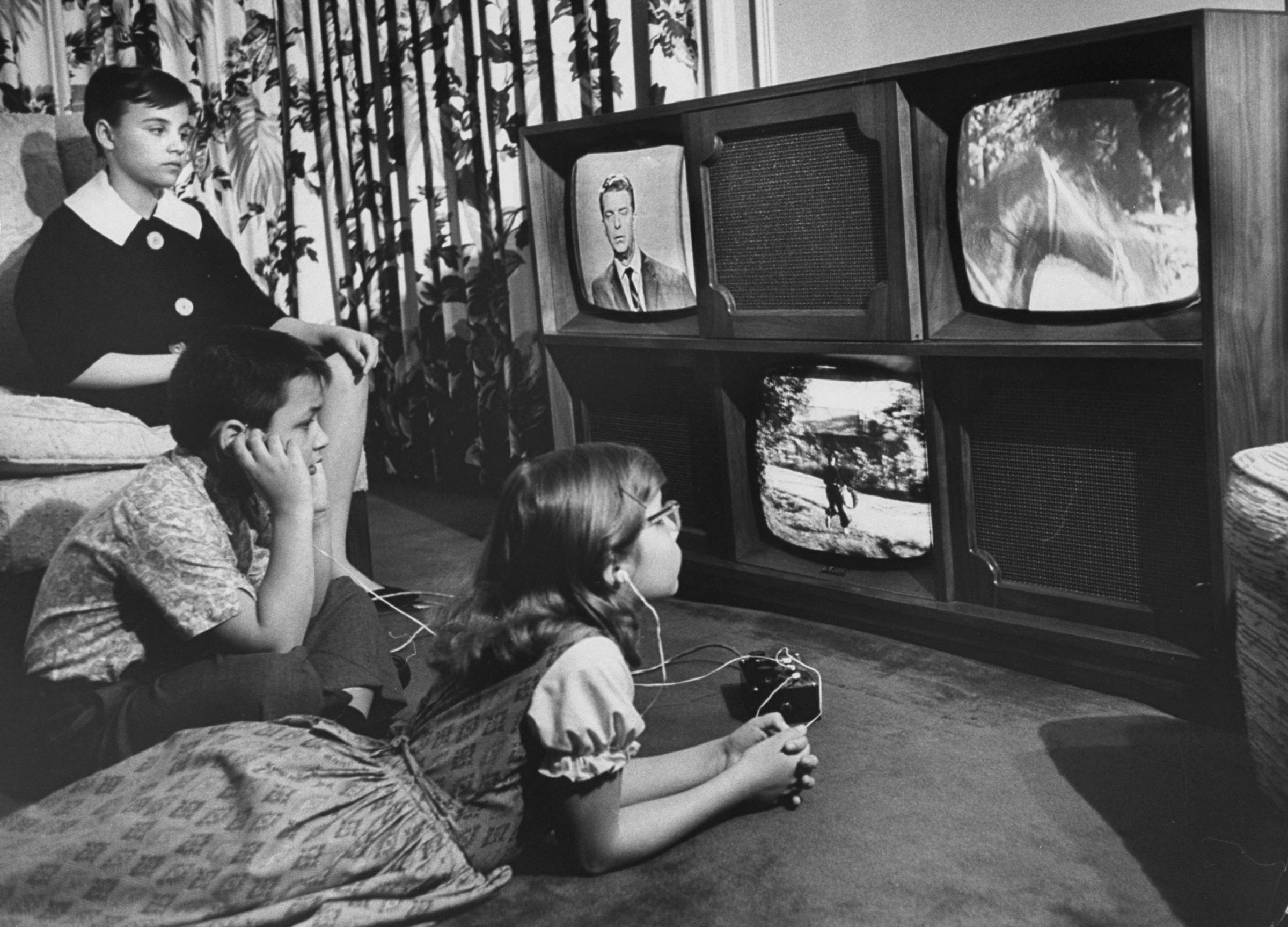
![Mrs. Malcolm S. Carpenter [& Family] Astronaut Scott Carpenter's wife, Rene, and son, Marc, watch his 1962 orbital flight on TV.](https://api.time.com/wp-content/uploads/2014/11/141113-vintage-television-photos-23.jpg?quality=75&w=2400)

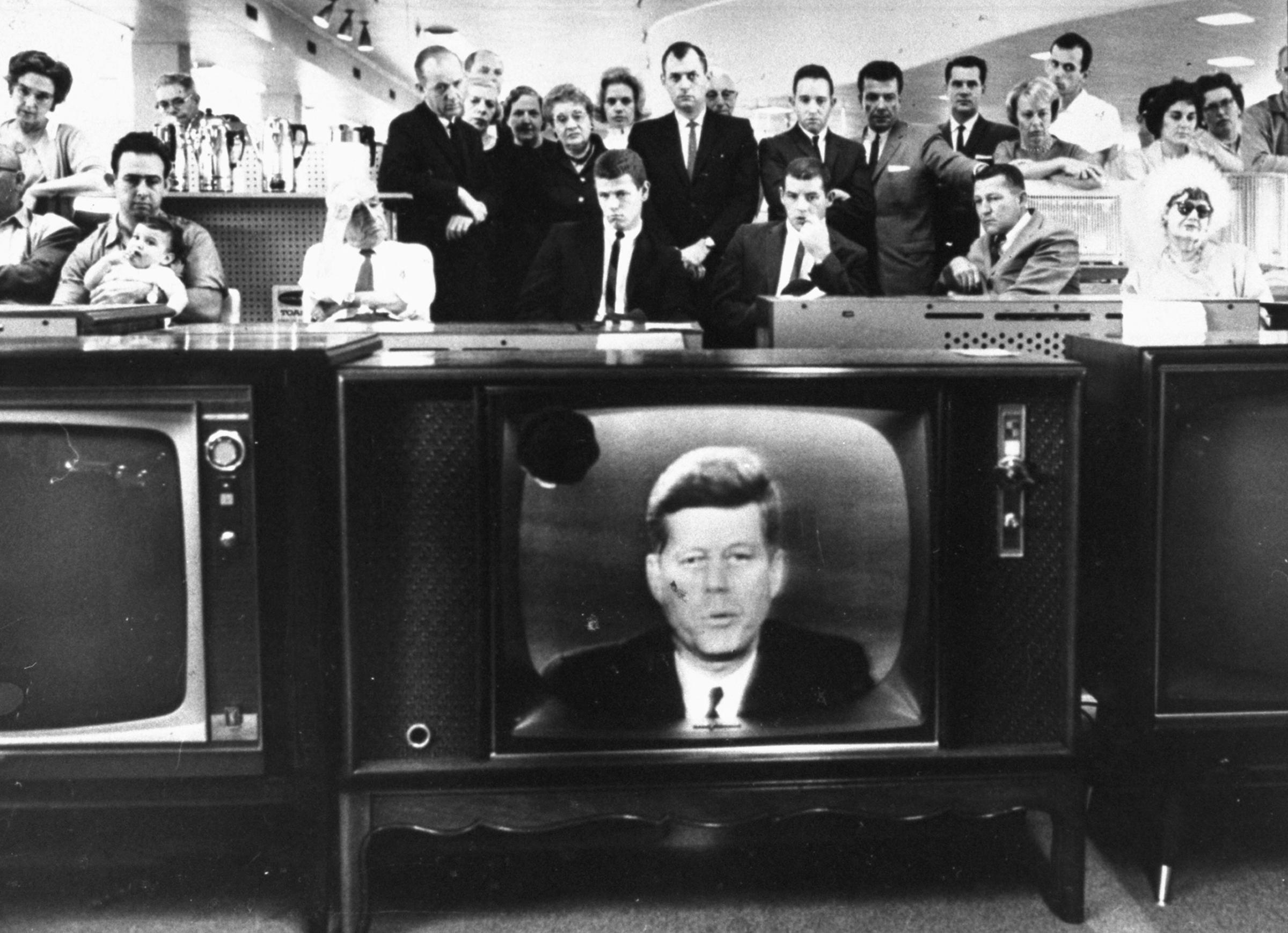
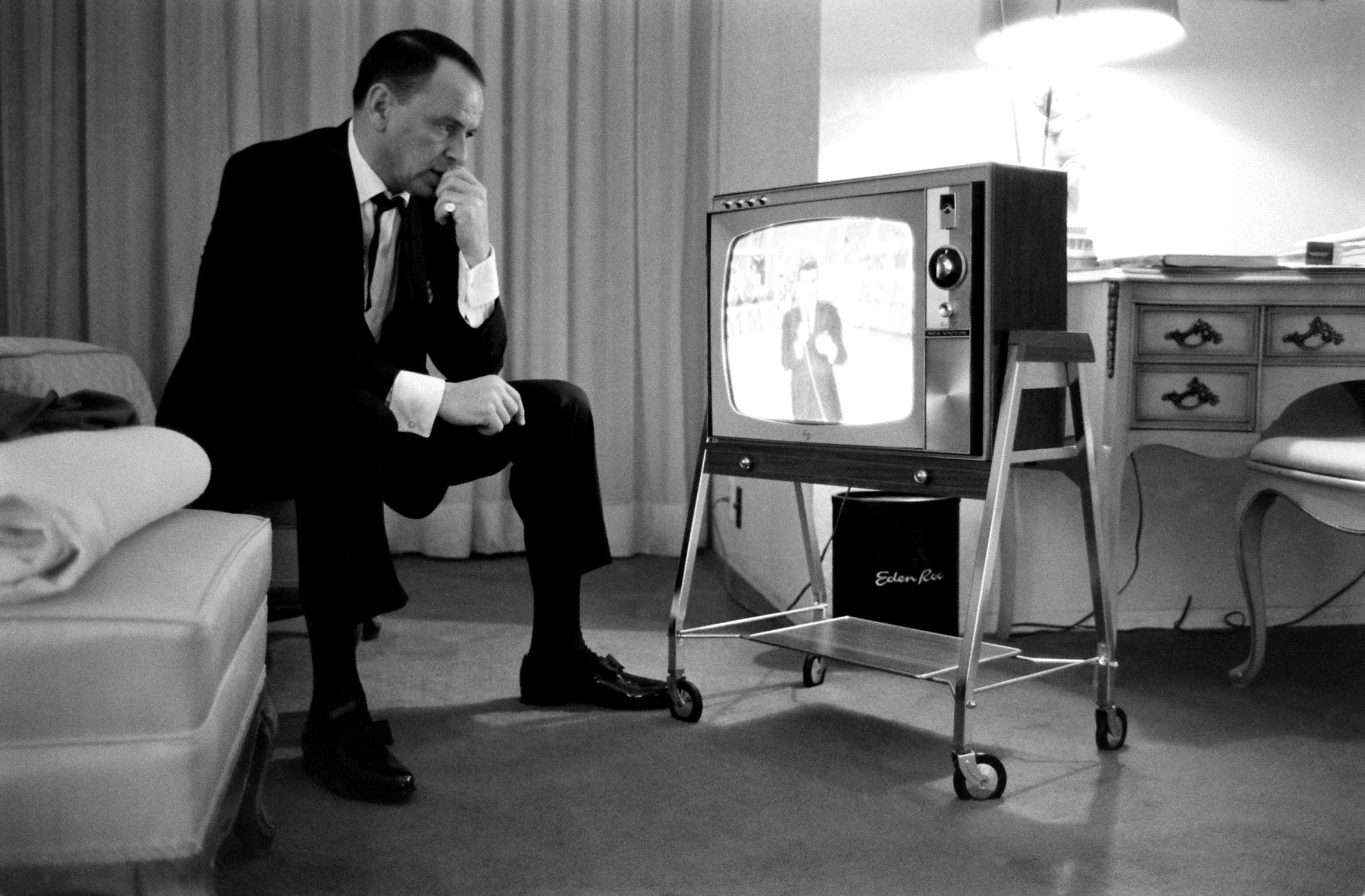
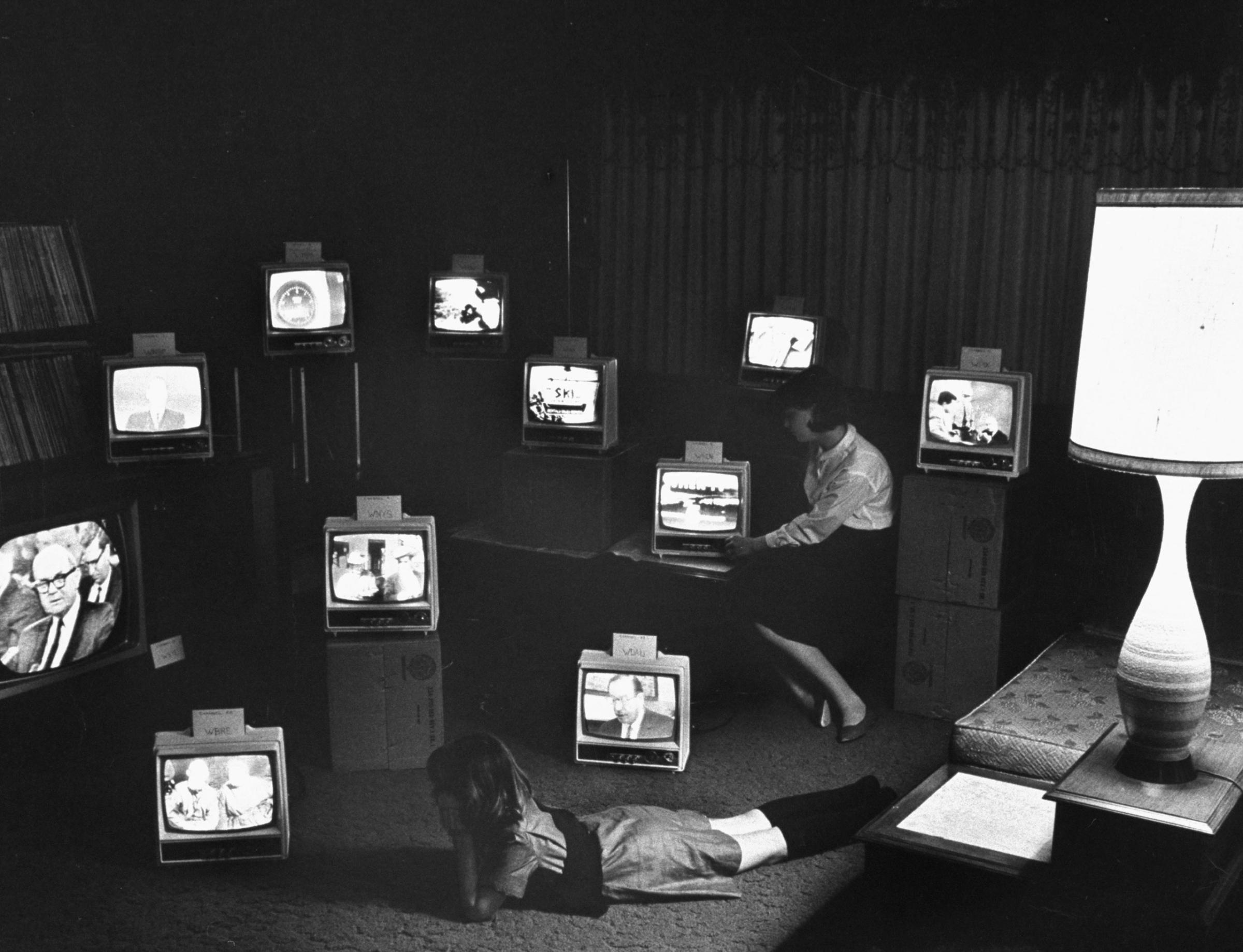
![Diahann Carroll [Misc.];David Frost [Misc.];Diahann Carroll;David Frost Actress Diahann Carroll and journalist David Frost watch themselves on separate talk shows. Carroll and Frost were engaged for a while, but never married.](https://api.time.com/wp-content/uploads/2014/11/141113-vintage-television-photos-28.jpg?quality=75&w=2400)
More Must-Reads from TIME
- Why Trump’s Message Worked on Latino Men
- What Trump’s Win Could Mean for Housing
- The 100 Must-Read Books of 2024
- Sleep Doctors Share the 1 Tip That’s Changed Their Lives
- Column: Let’s Bring Back Romance
- What It’s Like to Have Long COVID As a Kid
- FX’s Say Nothing Is the Must-Watch Political Thriller of 2024
- Merle Bombardieri Is Helping People Make the Baby Decision
Contact us at letters@time.com